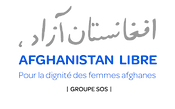
WATER, SANITATION, AND HYGIENE
Make clean water, realiable bathroom facilities, and good hygiene normal and accessible for all students in rural areas.
In Afghanistan, access to clean drinking water remains scarce. 98% of the drinking water in Kabul is estimated to be unfit for safe consumption according to international standards; this worsens in rural areas. A serious lack of infrastructure and oversight of water systems (for both potable water and grey water) and sanitation facilities puts Afghans at risk of various water borne and diarrheal diseases.
An alarming 30% of public schools in Afghanistan do not have clean drinking water and 60% of public schools do not have toilets. Access to clean drinking water and suitable toilets for boys and girls with adequate privacy are essential elements of a learning environment in which students may thrive. These facilities are particularly important to menstruating girls who on average miss 4 days of school a month due to inadequate sanitation facilities and materials – this often causes them to get too far behind in their studies to catch up.
Afghanistan Libre works with public schools to construct adequate water, hygiene, and sanitation facilities and to raise awareness amongst students and teachers on best practices for clean drinking water and on how to prevent waterborne diseases. Doing so enables girls to miss less school and creates a learning environment in which students can thrive.
3 266
students benefited from improved clean drinking water and adequate facilities at their schools in 2020
72
teachers completed a workshop on water, hygiene, and sanitation and are able to share their new knowledge with their communities and students
4
schools' WASH facilities were improved and their WASH policies transformed thanks to Afghanistan Libre in 2020.
OUR PARTNER




